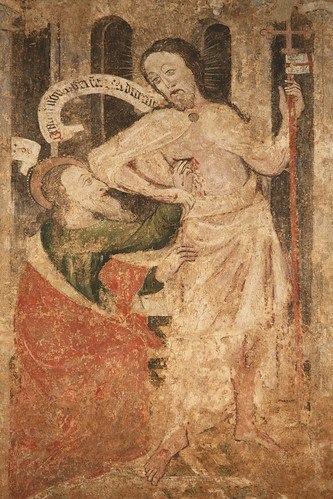We run our website the way we wished the whole internet worked: we provide high quality original content with no ads. We are funded solely by your direct support. Please consider supporting this project.
The God Who Embraces Our Doubt
Lawrence OP via Compfight
Zack Hunt over at The American Jesus posted some of his thoughts on doubt, and it seemed fitting on this week before the Doubt, Faith & the Idol of Certainty conference to share what he had to say. We’re thinking he must have stumbled on Greg’s book or maybe God is doing something larger and more beautiful than we can imagine. Maybe God is inviting us to get real, to speak out loud all of the hidden questions and doubt, to bring them out into the light of day. The light is where God can speak and heal and love us.
From Zack’s blog:
The real problem we have in the church is not with doubt, but with our inability to make space for those who do have doubts about their faith, who are going through the exact same struggle the people of God have endured for as long as their have been a people of God.
Too often we don’t do a very good job of giving our brothers and sisters the freedom ask the question they need to ask and share the pain that’s ripping their faith apart. Too often we treat doubt as if it were some kind of sin or disease and doubters as if they were lepers to be shunned. As if any display of weakness will reveal the church’s imperfections to the world and anger God.
Contrary to the God of the Bible who listens to our questions and embraces our doubt, who even when we shout to the heavens “My God, my God why have you forsaken me” does not pour out his wrath, but showers us with love; contrary to the very God we claim to worship, we as a church too often dismiss doubts as “just a phase,” dishonor heartfelt questions by telling people “just to believe,” and compound the pain of the suffering by blaming those who suffer for “not having enough faith.”
Category: General
Tags: Bible, Doubt, Faith, God, Honesty, Jesus, The American Jesus, Upside-Down Kingdom, Zack Hunt
Related Reading

Why Did Jesus Die on the Cross?
If asked why Jesus had to die on the cross, most Christians today would immediately answer, “To pay for my sins.” Jesus certainly paid the price for our sins, but it might surprise some reader to learn that this wasn’t the way Christians would answer this question for the first thousand years of Church history.…

The Lord of Legend and Love
However secularized a person may be, if they have any sense at all that life has a meaning, they know it must have something to do with love. Indeed, one could argue that all of our intuitions about morality and the meaning of life are at root an intuition about the supremacy of love. At…

Kingdom Sightings: God and Guinness
Evan Leeson via Compfight Here’s a unique Kingdom initiative from one of our readers that we wanted to share with you. If you’re in Ann Arbor, check it out! Starting in January, one of the pastors at our church (Kevin Davis, of 242 Community Church in Ann Arbor, MI) will be starting a new initiative…

What do you think of the classical view that God is impassible?
The classical view has historically held that God is impassible, meaning he is above pathos (passion or emotions). The main reason the church came to this view was that, following the Hellenistic philosophical tradition, they associated emotions with change while believing God was above all change (immutable). Moreover, experiencing emotions implies that one is affected…

The REAL Problem with Divine Violence in the OT
As I mentioned in my previous blog, while I will continue to offer video-blogs responding to questions that come in, I’m also planning on sprinkling in reflections based on my forthcoming book, Crucifixion of the Warrior God, over the next couple months. Today, I just want to state what I consider to be the real…

A Dear John Letter to John Calvin
Zack Hunt of The American Jesus wrote a brilliant “Dear John” letter after reading Calvin’s most famous work, Institutes of the Christian Religion. If you want to hear a well-articulated and engaging challenge of classic Calvinism, you should read the whole post. Here’s a little snippet to spark your interest: But, John, I think the ultimate…

